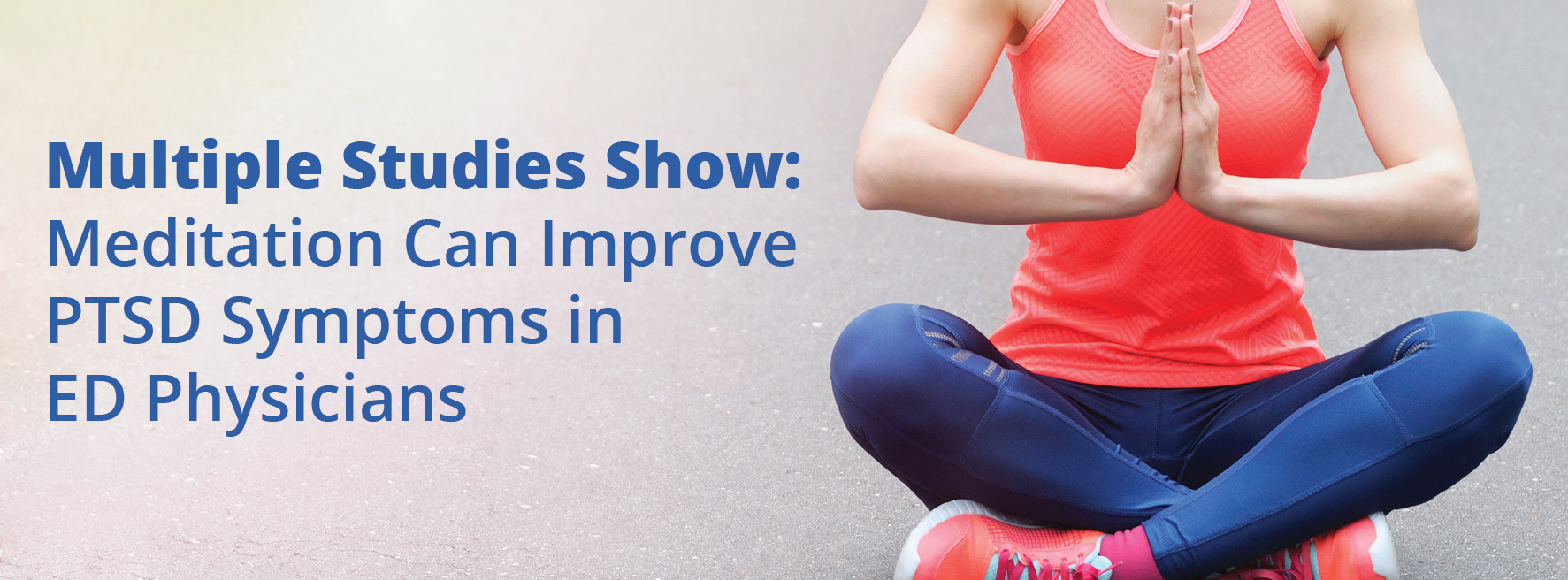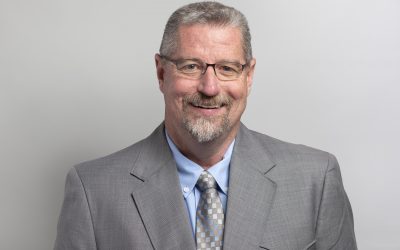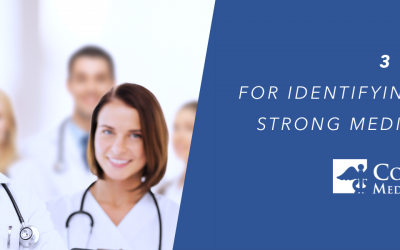While post-traumatic stress disorder (PTSD) is often associated with military veterans, many other occupations such as first responders and ED physicians, also experience traumatic events that can cause PTSD. Studies have shown one way these individuals can reduce symptoms of PTSD is through the practice of meditation.
Post Traumatic Stress Disorder
PTSD is defined as “a disorder that develops in some people who have experienced a shocking, scary, or dangerous event.” Fear causes instant changes in one’s body to guard against a threatening situation or to evade it. The “fight-or-flight” response is an example of this, even when they do not face an immediate threat.
Those suffering from PTSD may experience the following:
- Frightening thoughts
- Unpleasant dreams
- Flashbacks—reliving the event with accompanying physical reactions such as perspiration or an elevated heart rate
Emotional and cognition PTSD symptoms include:
- Loss of interest in pleasurable activities
- Magnified feelings of blame or guilt
- Negative thoughts about oneself or the world
- Difficulty recalling basic features of the traumatic event
A PTSD sufferer may modify his/her habits by:
- Ignoring feelings or thoughts connected to an event
- Circumventing locations, events, or objects that remind one of the traumatic experience
Meditation Proven Effective for Post Traumatic Stress Disorder
In an article entitled “Is Meditation the Best Cure for PTSD in EMS”, Erin Fletcher, Director of the Wounded Warrior project, says, “Meditation can help bring a person’s attention back to the current moment, which reduces or eliminates or reduces anxiety.”
But what is meditation exactly and what does it do? Harvard Medical researchers, using MRI technology to monitor the brain activity of those meditating, discovered that meditation stimulates the areas of the brain controlling the autonomic nervous system, which regulates conditions like blood pressure and digestion.
Rob Nairn in his book, What is Meditation, describes meditation as a “…highly alert and skillful state of mind because it requires one to remain psychologically present and ‘with’ whatever happens in and around one, without adding to or subtracting from it in any way.”
There are different ways to practice meditation, individually or in groups. It usually involves sitting silently, concentrating on one’s breath. It has been found to be a stress reducer, and can facilitate a higher level of self-insight and self-acceptance. It has also been found to reverse heart disease, the risk of stroke, and gastrointestinal problems.
More Positive Correlations Between PTSD Reduction and Meditation
In an article entitled “Mind-Body Practices for Posttraumatic Stress Disorder”, researchers highlighted 16 articles examining using mind-body modalities as interventions for PTSD. Generally, these practices were found to improve PTSD indicators such as increased emotional arousal, avoidance, and intrusive memories.
Within this article, 11 out of the 16 studies demonstrated a significant reduction of PTSD severity of symptoms following participation in the mind-body interventions.
Annette Hill, clinical director of Warriors Heart states, “While meditation does not fix the root causes of PTSD, it can help to put distance between the symptoms and the person, giving them a sense of mastery and containment, making it possible to do that deeper trauma work.”
Although there are other methods by which an ED physician can improve his PTSD condition, such as joining support groups and developing a positive coping strategy, the evidence clearly indicates that practicing meditation offers solid, viable benefits as an approach. If you’re experiencing PTSD, talk to your PCP and start focusing on your mental health by practicing meditation in a way that works best for you.
More Posts
Concord Announces Dr. John Jones as Chief Medical Officer of Emergency Medicine
Concord Medical Group is extremely excited to announce that John Jones, MD has accepted the role of Chief Medical Officer of Emergency Medicine.
Creative Staffing Models for Rural Emergency Departments
Exceptional Medical Directors are a not-so-secret sauce that power any well-oiled clinical program. They are a unique breed; equal parts clinical stand-out, skillful communicator, strategic thinker, and thoughtful mentor. At Concord, Medical Directors
3 Tips for Identifying and Retaining Strong Medical Directors
Exceptional Medical Directors are a not-so-secret sauce that power any well-oiled clinical program. They are a unique breed; equal parts clinical stand-out, skillful communicator, strategic thinker, and thoughtful mentor. At Concord, Medical Directors






